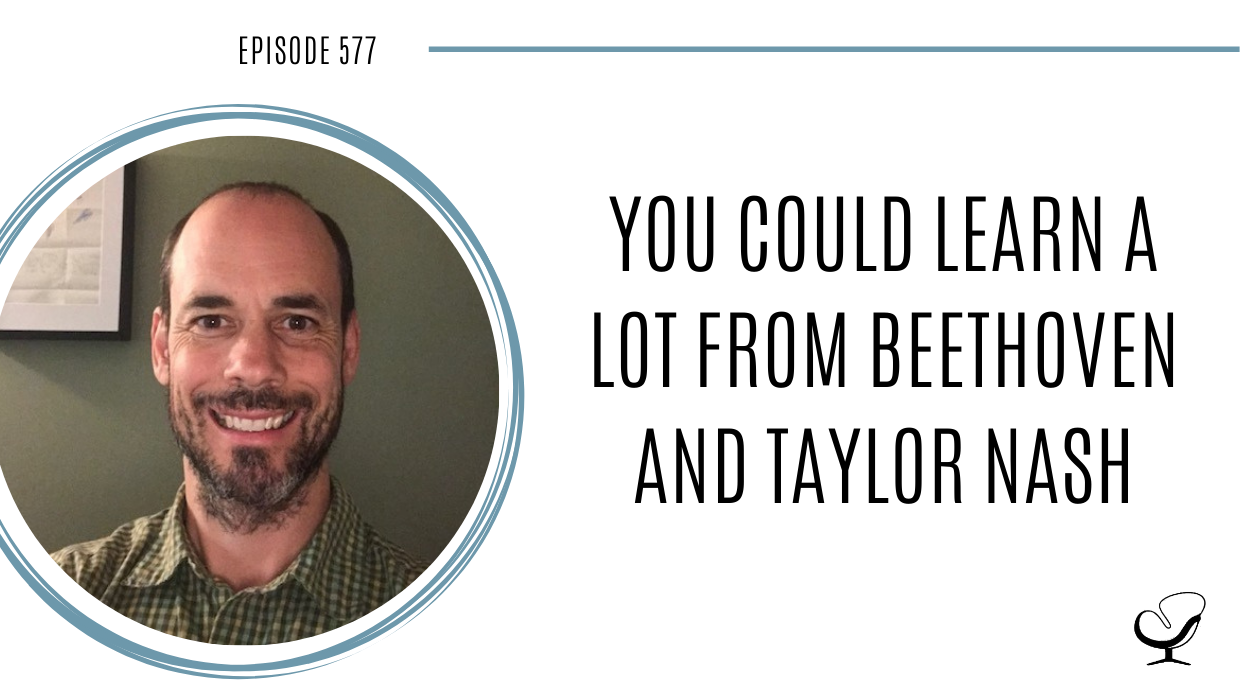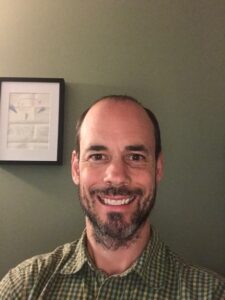Podcast: Play in new window | Download | Embed
What is the relationship between curiosity and human evolution? How do we move between comfort zones and learning curves through curiosity? What can we learn from Beethoven’s music for our curiosity and creativity?
In this podcast episode, Joe Sanok speaks with Taylor Nash about curiosity, creating tension, and Beethoven.
Podcast Sponsor
 Try out TherapyNotes! It makes notes, billing, scheduling, and telehealth a whole lot easier. Check it out and you will quickly see why it’s the highest-rated EHR on TrustPilot with over 1000 verified customer reviews and an average customer rating of 4.9/5 stars.
Try out TherapyNotes! It makes notes, billing, scheduling, and telehealth a whole lot easier. Check it out and you will quickly see why it’s the highest-rated EHR on TrustPilot with over 1000 verified customer reviews and an average customer rating of 4.9/5 stars.
You’ll notice the difference from the first day you sign up for a trial. They offer live phone support 7 days a week.
So when you have questions, you can quickly reach someone who can help, you are never wasting your time looking for answers.
If you are coming from another EHR, they make the transition really easy. TherapyNotes will import your clients’ demographic data free of charge during your trial so you can get going right away.
To get 3 free months of TherapyNotes, no strings attached including their very reliable telehealth platform click here.
Meet Taylor Nash
Taylor lives in Northern Michigan with his wife and two boys. He works there as a community college advisor.
In his spare time you can’t find him because he’s lost in the woods, away from people, or, more likely, he’s begrudgingly working on his house.
In This Podcast
- Beethoven and art
- Opus 130
- Taylor’s advice to private practitioners
Beethoven and art
Human beings are curious, and curiosity leads to tension when you are exposed to something and want to know how it will end.
This cycle comes into our lives with moving in and out of our comfort zones: we seek truth and healing, so we must exit our comfort zone from the past, and heal and learn and become curious, so that we may create a new sphere of comfort. This cycle repeats and it is good for you to expand it throughout life.
In terms of artistic achievement … I don’t know if there’s been a person who’s achieved more or created and worked with his art in a way that best connects with humanity. (Taylor Nash)
Beethoven not only made a profound impact on the history of music, but he also wrote and performed and created music well into his life even when he lost his hearing and became deaf.
Any composer, himself included, would see [deafness] as a terrible limitation on his craft or on his art [but] it ended up pushing him into new areas and pushed him into areas where people hadn’t been before. (Taylor Nash)
This is something about the world of art that creates unending cycles of fascination: the confines of the framework of the artistic expression are what help to create its beauty. The glory of artwork is heightened due to the fact that it came to be despite difficult circumstances.
[Beethoven] started to push forms and started to do unexpected things and started to create music whose goal was artistic expression or expression of humanism and not so top-down directed. (Taylor Nash)
Opus 130
Most classical music is made up of quartets that use a sonata form, which consists of three section movements:
- Exposition: setting up the framework with the theme and melody and that builds a pattern
- Development: composer takes the theme and melody and pushes its limits
- Recapitulation: the conclusion, where the composer brings the listener to the end of the tension
Beethoven, unlike other classical composures, always brings his listeners home. After the tension he creates and places you in, he pulls you back and safely puts you down in yourself afterward.
I think if you’re focusing on being popular your art will suffer. If your interest is popularity, then I think that’s a compromise you make but there are exceptions to that. (Taylor Nash)
Taylor’s advice to private practitioners
Pursue your art as an art. Pursue human understanding as a pursuit in and of itself. Look at what you are doing as a craft, and then learn its pieces and find new ways to put those pieces together. Never stop finding new ways to understand your craft and new ways to structure it.
Books mentioned in this episode
Useful Links:
- Dawn Gabriel On Changes In Spiritual Direction | POP 576
- Thursday Is The New Friday
- Starting a private practice? Get this free 28 step checklist
- Sign up for Next Level Practice
- Events – click on the event’s dropdown
- Sign up to join the free webinars and events here
- Podcast Launch School
- Practice of the Practice Podcast Network
- Free resources to help you start, grow, and scale
- Apply to work with us
Meet Joe Sanok
Joe Sanok helps counselors to create thriving practices that are the envy of other counselors. He has helped counselors to grow their businesses by 50-500% and is proud of all the private practice owners that are growing their income, influence, and impact on the world. Click here to explore consulting with Joe.
Thanks For Listening!
Feel free to leave a comment below or share this podcast on social media by clicking on one of the social media links below! Alternatively, leave




